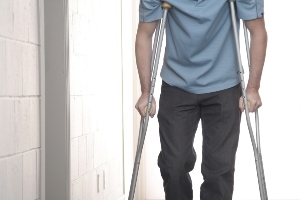 Many crash victims feel immense pressure to get back to work as quickly as they can. They cannot afford to miss work and not get paid, especially when they have a family to support. The trouble is that returning too soon could affect the value of your claim for compensation.
Many crash victims feel immense pressure to get back to work as quickly as they can. They cannot afford to miss work and not get paid, especially when they have a family to support. The trouble is that returning too soon could affect the value of your claim for compensation.
In this blog we discuss getting back to work after a South Bend collision, including the disadvantages of going back to work too soon and when it is the right time to return to your job.
At Pfeifer, Morgan & Stesiak, our South Bend car accident lawyers can help you navigate through the insurance claim process so you can focus on recovery. We have a proven record of success and have helped clients recover millions in compensation.
Call today to schedule a free case review: 574-444-0741.
When Is the Right Time to Return to Work?
There are numerous factors to consider as you decide when it is the right time to go back to work after a car crash injury.
Medical Advice
This is by far the most important factor in your decision. While you may have other things weighing on your mind, you should follow your doctor’s recommendations and workplace restrictions. You should not go back to your job without your doctor’s approval. If you go back too quickly or engage in too much physical activity, your injuries could get worse, delaying your recovery.
Personal Recovery
You should evaluate your mental and physical readiness before you decide to go back to work. Ask yourself: Can I perform my duties without risking further injury?
Pay attention to any pain, discomfort or fatigue that may hinder your performance or prolong your recovery. If your doctor recommends going back, but you do not think it is a good idea, talk to your doctor. You may also consider a second opinion from another physician.
Workplace Demands
Consider the physical and mental demands of your job. Some roles require more physical exertion or mental focus than others. If your job is physically demanding, it may be necessary to take additional time off or request modified duties. This should be done in close consultation with your doctor.
Although you may be eager to return to work and resume your daily routine, it is important to prioritize your long-term health over immediate financial concerns. Returning to work too soon might offer short-term financial relief, but focusing on a full recovery will benefit your overall health.
Disadvantages of Returning to Work Too Soon
There are various reasons why returning to work before your doctor gives the OK is a bad idea. Here are some disadvantages you should keep in mind before trying to rush back:
Prolonged Recovery
You are risking increased pain and discomfort, aggravation of your existing injury and possibly new injuries. You could extend your recovery period, which means it may take much longer to resume your usual workplace duties.
Financial Risks of Returning to Work
If you return to work too soon, the insurance company may think that you are injuries are not serious, especially if you go against your doctor’s recommendations. This could be a reason for them to make a small settlement offer or deny your claim.
Their reasoning is that you must be fully healed if you are back on the job. They may also question if you were ever injured in the first place if you are ignoring what your doctor told you.
Mental and Emotional Stress
The pressure to perform and the stress of managing work duties while still recovering can take a toll on your mental and emotional well-being. Your mental health could also take a hit if you reinjure yourself.
Many people feel depressed just sitting at home, so they rush back to work to be around their coworkers, some of whom may be good friends. However, this boost to your mental health could be short-lived if you hurt your recovery.
What if the Insurance Company Pressures You To Go Back to Work?
The insurance company may encourage you to return to work sooner than the doctor says. They want to reduce the value of your lost wages claim.
The insurance company could also question the doctor’s recommendations. They may say the doctor is making decisions based on what you are saying and you are overstating the seriousness of your injuries.
This is why you should keep and organize detailed records of your medical treatments and recovery progress. This documentation can support your claim and refute any premature return-to-work suggestions from the insurer.
What Should I Do if I Am Not Prepared to Return to Work?
If you feel unprepared to return to work, you need to talk to your doctor. Make sure he or she fully understands your pain level and how your symptoms may interfere with your ability to do your job. Your doctor might decide to push back your return to your job.
If the doctor does not agree, you can seek an opinion from another doctor. However, if the new doctor still recommends a return to the office, you may be out of options. That said, the decision of when to go back to work is ultimately up to you.
You need to understand how not going back may affect your claim for compensation. If you do not go back when the doctor says, the insurance company may say you are failing to mitigate your damages. They may use this as a reason to devalue your claim. They may say your actions call your entire claim into question.
Call Pfeifer Morgan & Stesiak For Post-Crash Legal Assistance
At Pfeifer, Morgan & Stesiak, we are dedicated to supporting you through this challenging time, and our services come with no upfront costs. In fact, there are no fees unless we win your case.
We are also here to answer your questions and guide you every step of the way. When faced with an insurance company trying to deny your claim or make a lowball offer, you need an experienced advocate in your corner.
Call us today to find out your legal options: 574-444-0741.













